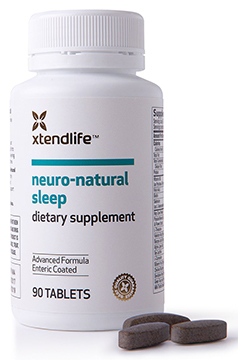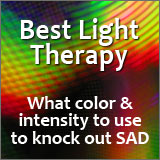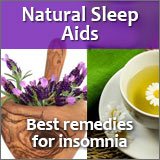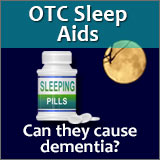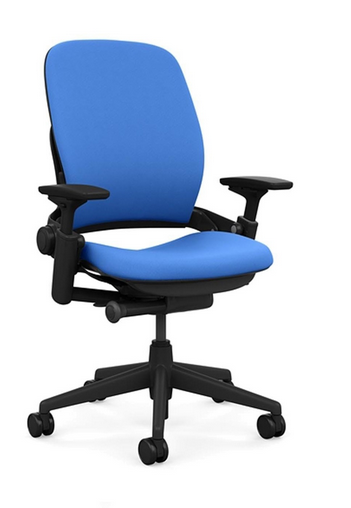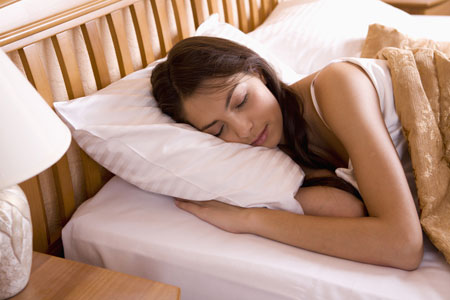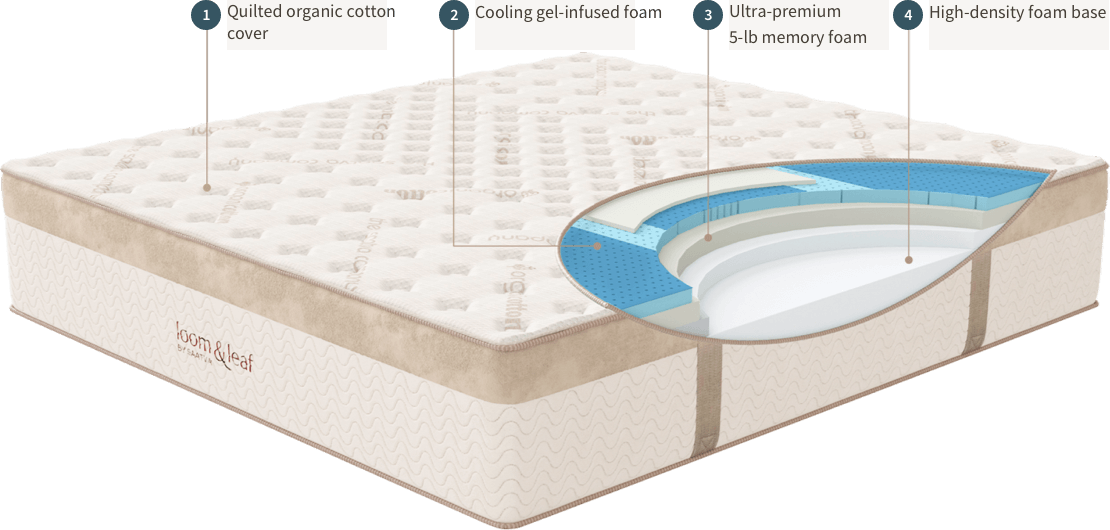Beware These Dangerous Symptoms
of
Sleep Deprivation
No, you won't go blind or deaf. However, one of the symptoms of sleep deprivation is vision and hearing problems.
And as you'll see below, this combination can be deadly.
Here's how I found out about this.
Recently I received two questions from two different visitors to Sleep Passport. Both had to do with the effects of sleep deprivation on the eyes.
The first question was: Can sleep deprivation affect your eyes and vision, and if yes, can you give specific details and examples?
This is an important question and there are two parts to the answer
- How the symptoms of sleep deprivation affect the way the eyes
and face appear.
- The effects of sleep deprivation on vision.
As for appearance, lack of sleep can create:
- Puffiness under eyes
- Dark circles under eyes
- Dryness
- Bloodshot, red eyes
I will not cover those symptoms of sleep deprivation in this article. The reason is because the second question I was asked is: I have under eye puffiness and also dark circles under my eyes. Do you know anything that can help with these?
I do know what can help with those bags under your eyes and will address that in another article.
For now, let's look at the negative effects of sleep deprivation on your ability to see.
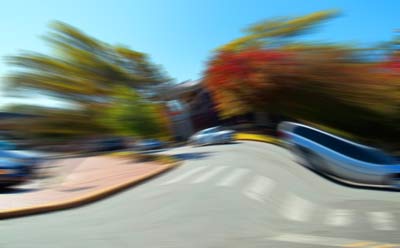
Brain fog and mental decline
Here's the big key for you to realize: Sleep loss fogs up your brain functions.
Studies show that sleep deprivation negatively affects sensory input to the brain. It impairs and slows down the ability of the brain to process detailed visual information.
One consequence of this is your eyes' depth perception is not as accurate. Sleep loss affects the ability of your two eyes to properly work together.
In addition, one of the symptoms of sleep deprivation is an affect on the processing of vestibular information. The vestibular system in the body is responsible for helping to maintain a sense of balance.
These two consequences of sleep deprivation affect the young and old. But they may be particularly important as people get older.
As we age, our balance is not as good and falling down is often common. Fractures can cause a major health decline. Even death.
Tired, jittery eyeballs are deadly eyeballs
Another one of the symptoms of sleep deprivation is a decrease in the functioning of the oculomotor nerve that controls the movement of the eyeballs.
This nerve controls upward, downward, and inward eye movement. It also controls the narrowing and widening of the pupil, as well as maintaining open eyelids.
Sleep deprived subjects involved in one of these eye nerve studies had a deterioration in their test performance. Yet, they did not report feeling sleepy.
I find this alarming and you should to
Just think about this. As the symptoms of sleep deprivation are reducing a person's ability to think and act clearly, the person doesn't even know it. As you will see below, the implications for driver safety are scary.
Some studies have also suggested that tunnel vision may be one of the symptoms of sleep deprivation. As people get sleepier, they begin to neglect objects in their peripheral vision.
This is double trouble for all of us as we age
That's because aging, as well as sleep deprivation, lowers our abilities to process peripheral signals that reach the eye.
And by the way, another one of the symptoms of both sleep deprivation and alcohol intoxication is something called end-position nystagmus. This is rapid involuntary movements of the eyes when they are turned to their maximum horizontal position.
When a police officer stops a person they suspect is driving under the influence of alcohol, they are trained to look for nystagmus. Sleep deprived people could appear to the officer to be intoxicated.
Can you hear me now?
A recent study showed that staying awake for 24 hours straight has a negative affect on hearing.
The study was done with 30 healthy females and males in the age range of 23 to 40. Lack of sleep resulted in listening difficulties and a slower ability of both males and females to process sound.
So why did I bother researching and writing this article on symptoms of sleep deprivation?
Because I think this article can save lives. Maybe yours. Maybe mine. Maybe one of our loved ones.
It's time for everyone to wake up to the reality that sleep loss and sleep debt leads to:
- An increase in errors
- Less accuracy
- Slower reaction times
- Impairment of the attention span
And consider this. Millions of people are sleep deprived all over the world.
In addition, these same people are driving around tired...AND they are texting or talking on their cell phones at the same time.
It's insane!
Death behind the wheel: Let's look at some scary facts
Studies have shown that as little as 18 hours of sleep deprivation impairs driving performance.
That means that if you got up at 6 a.m., then by midnight—if you are out driving around—you are a driving hazard.
Check out these facts.
In 2010, the AAA Foundation for Traffic Safety put out a report called Asleep at the Wheel: The Prevalence and Impact of Drowsy Driving. Here are just a few of their findings:
- Car accidents are one of the leading causes of death in the United States
- One in six (16.5%) of fatal car accidents are caused by a drowsy driver
- One in eight (13.1%) of crashes that resulted in hospitalization were caused by a drowsy driver
- Over a one month period of time, 25% of drivers admitted driving when they were so tired, they could hardly keep their eyes open
- 41% of drivers at some time in their lives have fallen asleep while driving
And here's something interesting...
Sleeping pills cause car accidents
Taking sleeping pills does not help people overcome their sleep deprivation. Did you know that sleep medications only give a person about 11 minutes extra sleep per night?
Big deal.
In addition, a study in 2012 showed that people who take sleeping pills or antidepressants were at greater risk of having motor vehicle accidents.
Final thoughts: What to do, what not to do
- Never drive when you are tired. Never. It is not worth dying
or killing someone.
- If you are tired, pull over and take a nap. One technique is
to have a cup of coffee or a caffeinated beverage, and then lie down
and take the nap. It takes about 30 minutes for the caffeine to
really kick in. When you wake up, you'll have your buzz.
- Studies have shown that continuous, monotonous driving
reduces our abilities to process visual information. Therefore, when
you are driving, take a break every couple of hours to get
refreshed.
- As mentioned above, one of the symptoms of sleep deprivation
is that people often don't feel sleepy, even though they are. So get
a good night's sleep before a big trip. And forget this nonsense
about working all day and then driving all night.
- Make sleep a priority in your life. Explore my website. Read the articles. Here are a few to get you started:
Got bags under your eyes?
And finally, if one of the symptoms of sleep deprivation that you have is bags under eyes, you'll like the next article I'm writing. I'll show you how to get rid of that baggage. Subscribe to my free Sleep Chat newsletter (up above right)...or click on the orange RSS button (up above left) to sign up for my blog. I'll let you know when I post the article.
A relief for you if you want a good night's rest
|
Here's a all-natural sleep aid that you might try if you are having trouble getting to sleep. This formula is designed to help you improve your sleep patterns. |
References
- Sleep Deprivation and Visual Evoked Potentials. Sleep, Vol. 31, No. 9, 2008
- Effect of sleep deprivation and driving duration on the useful visual field in younger and older subjects during simulator driving. Vision Res. 2003 Jun;43(13):1465-72.
- Pro-psychotic change of binocular depth inversion by sleep deprivation. Nervenarzt. 1997 Jul;68(7):593-6.
- End-position nystagmus as an indicator of ethanol intoxication. Science & Justice 2001; 41: 113–116
- Nystagmus testing in intoxicated individuals. Optometry, Volume 74/number 11/November 2003
- Effects of 24-hour and 36-hour sleep deprivation on smooth pursuit and saccadic eye movements. J Vestib Res. 2008;18(4):209-22.
- Oculomotor impairment during chronic partial sleep deprivation. Clin. Neurophysiol. 2003; 114(4): 723-736.
- Total sleep deprivation can increase vestibulo-ocular responses. 2006 European Sleep Research Society, J. Sleep Res., 15, 369–375
- Effects of sleep deprivation on central auditory processing. BMC Neuroscience 2012, 13:83
- Psychotropic Drugs and Risk of Motor Vehicle Accidents: a Population-based Case-Control Study. British Journal of Clinical Pharmacology © 2012 The British Pharmacological Society
- Asleep at the Wheel: The Prevalence and Impact of Drowsy Driving. AAA Foundation for Traffic Safety, November 2010
Return From Symptoms of Sleep Deprivation to 17 Shocking Physical Effects of Sleep Deprivation
Return From Symptoms of Sleep Deprivation to Sleep Disorders Home Page
